Online MBA in Organizational Leadership

Advance in Executive Roles with Proven Leadership Skills
100% Online
1–2 Years
36 Credit Hours
$537 per Credit
Request More Information
Complete this form to receive information about coursework, admissions, tuition, and more.
Inspire Teams and Organizations to Reach Their Full Potential
- Apply By: 03/06/26
- Start Class: 03/16/26
Prepare to lead with confidence in today’s dynamic business environment. SMSU’s online MBA in Organizational Leadership program delivers a deep understanding of leadership theory, team management, and human behavior in organizations. Through case studies, simulations, and collaborative projects, you will build real-world skills in motivation, communication, conflict resolution, and change management. The program is 100 percent online and can be completed in as few as 12 months. Whether you are managing teams, guiding strategic change, or developing future leaders, this MBA program equips you with the expertise to lead with clarity, empathy, and purpose.
Concentration Details
- Fit your studies around your career and personal life with the flexibility of this fully online program
- Learn from experienced faculty who bring real-world insight and valuable industry connections to help guide and support your success
- Accredited by the International Accreditation Council for Business Education (IACBE) and the Higher Learning Commission (HLC)
Gain the Leadership Expertise to Drive Performance and Innovation
Develop the leadership insight organizations need in a competitive global market with our MBA Organizational Leadership program.
Online Organizational Leadership MBA Required Courses
The focus will be on human behavior in organizations. Throughout this course, students will develop and apply concepts and theories of organizational behavior in business organizations. A micro to macro approach will be used to progressively study behavior from the individual, group, and organizational levels. The goal of the course is to discover ways to understand and improve behavior at each level, and thereby increase the efficiency of the organization.
This course gives students an in-depth exploration of leadership and its connection to team management strategies. The primary focus will include best practices and practical application strategies within the field. Content areas include traits, motives, and characteristics of leadership, leadership behaviors, attitudes and style, using creativity and innovation in leadership, power and political influences on leadership, leadership ethics and social responsibility, charismatic, transformational, contingency and situational leadership styles, influence tactics of leaders, developing teamwork, motivation and coaching skills, communication and conflict resolution, strategic leadership and knowledge management, international and diversity aspects of leadership, and leadership development and succession. The course will encompass the use of current event topics and critical analysis techniques regarding leadership and team management, including ethical implications of decisions, and apply legal and ethical decision-making skills to leadership and team management scenarios.
Organization development (OD) is concerned with planning, researching, and implementing interventions aimed at organizational change and renewal. The course focuses on understanding and developing process consulting skills. The course will also engage in in-depth exploration of various intervention strategies, including human process, technostructural, systemwide, and strategic change.
Select one of the following:
This course will help students develop an awareness of, and sensitivity to, the needs and conditions of diverse groups; theoretical and conceptual knowledge about diverse groups; and specific skills in interacting with people from various diverse groups. The class will approach discussions regarding diversity from the underlying issues surrounding privilege. Students will learn how invisible privilege impacts all aspects of life; this concept will be addressed from the perspective of primary and secondary characteristics of demographic diversity.
This course is designed to increase students self-awareness and how it relates to interpersonal and managerial effectiveness. This course improves advanced managerial skills such as goal-setting, time management, running effective meetings, team facilitation, feedback, networking, creative problem solving, coaching, mentoring, and empowerment. It includes current research on optimism, resilience, self-efficacy, work and emotions, cooperation vs. competition, and work design.
This course is designed to give students an in-depth explanation of the basic functions regarding the field of human resource management. The primary focus will include best practices and practical application strategies within the field. Content areas include strategic planning, diversity, state and federal laws and regulations, recruitment and selection, employee relations, compensation and benefits, job analysis and evaluation, performance management, training and organization development, career planning, risk management, and union relations. The course will encompass the use of current event topics and critical analysis techniques regarding human resources, including ethical implications of decisions, and apply legal and ethical decision-making skills to human resource scenarios.
This course examines the role of negotiations and mediation in conflict resolution. With the former, we consider theoretical knowledge and practical skills essential to being effective negotiators. With the latter, the course delves into the mediation process. In so doing, the role of the third-party neutral, or the mediator, is examined in its role in assisting disputing parties reach resolution. With both, the course overlays law topics that are relevant to managers in the legal environment. Such legal topics will require students to employ negotiation strategies to resolve conflict.
Focuses on the role of technology in organizations. A top-down approach is used which will range from considering technology as a strategic variable for competitive advantage to applying technology as a means of improving operational efficiency and customer service. The course considers the challenges of innovation as well as the potential conflicts and resistance resulting from technological change.
This course will provide a general management perspective of current and emerging issues facing organizations. Students will be required to address and analyze the many dilemmas and problems managers encounter in fashioning short-and long-term solutions and in taking action. The focus of the seminar will be Management of the Future.
SMSU’s online MBA includes 36 credit hours, and you can complete the program in as little as one year with accelerated course options. The core curriculum explores essential business topics like strategic management, international business, operations, and more.
Curriculum DetailsLead Change and Inspire Performance
Earn your online MBA in Organizational Leadership and gain a powerful competitive edge. Demand for leaders is booming, and employment for financial managers and IT managers is projected to grow 17% through 2033.1 This program equips you with the strategic insight, people-centered leadership, and decisive problem-solving skills employers demand. Position yourself for higher-level leadership roles and long-term career advancement.
Sales Manager $138,060 per year2
Training and Development Manager $127,090 per year3
Explore More MBA Concentrations
SMSU offers a wide array of online MBA concentrations to match diverse career ambitions. Each concentration integrates current industry practices and real-world learning to build specialized expertise and practical leadership skills. Whether your goal is to drive innovation, lead global teams, or steer operations in dynamic sectors, SMSU’s online MBA programs are tailored to help you excel.
Sources
- Bureau of Labor Statistics, U.S. Department of Labor. Occupational Outlook Handbook. “Financial managers; Computer and information systems managers.” Retrieved July 25, 2025, from https://www.bls.gov/ooh/management/financial-managers.htm and https://www.bls.gov/ooh/management/computer-and-information-systems-managers.htm.
- Bureau of Labor Statistics, U.S. Department of Labor. Occupational Outlook Handbook. “Sales Manager.” Retrieved July 25, 2025, from https://www.bls.gov/ooh/management/sales-managers.htm.
- Bureau of Labor Statistics, U.S. Department of Labor. Occupational Outlook Handbook. “Training and Development Manager.” Retrieved July 25, 2025, from https://www.bls.gov/ooh/management/training-and-development-managers.htm.
